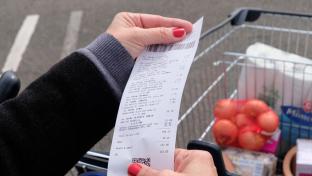Amazon, the food retailing bogeyman
Following in Target and Walmart’s footsteps, Amazon will now sell privately labelled food products, sending a clear signal about its strategic intentions.
If anyone was looking for a clear commitment to food from this e-retailing giant, this was it. More than anything else, Amazon’s creation of its own portfolio of private labels is driven by millennials.
The generation who grew up with the Internet is embracing Amazon’s recent evolution. millennials appreciate quality, taste and affordability; most importantly, however, unlike previous generations, they are brand agnostic. Boomers are historically brand loyal, and they are gradually becoming less active buyers.
This move demonstrates that the private label game in the food business will only intensify. Recently, in Canada, Sobeys made a pre-emptive move by enticing customers to visit the centre of the store with an aggressive discount strategy in every chain in an attempt to keep customers buying its high-margin private label, Our Compliments and Sensations.
Not surprisingly, Walmart Canada countered with a swift response. Even if Sobeys’ strategy isn’t a good fit with their core strategy, it nevertheless opted to play private label defense.
Private labels are a goldmine for food retailers. While they have been in Canada since the end of the Second World War, they have been in greater demand over the last couple of decades.
Since they control their own shelf space, retailers can control quality, manufacturing conditions and control of product development. Retailers rely on outsourced innovation, and can cash-in on it afterwards. In other words, retailers do not have to take the high-risk road of spending millions on R&D without knowing if they will come up with a marketable product. This is a powerful tool for low-margin food retailers.
Amazon has yet to release exact products for its label, but reports suggest that Happy Belly, Wickedly Prime, Presto! and Mama Bear are under consideration. So millennials are clearly on Amazon’s mind.
These products will be allegedly available only to Amazon Prime members. The company’s ethos relies on Prime members who pay $99 to avoid having to fight through busy aisles and a long wait at the cashier, like you find at Costco. This is another very attractive feature for millennials, who really value their time.
Loblaw, Canada’s No.1 food retailer, has had a different approach to its very influential President’s Choice label, one of the most recognized Canadian brands. Not only does it have a strong market position, the infrastructure behind the label is also robust, including the loyalty program and Shoppers’ connection to transient customers.
The reign of President’s Choice will be difficult to supplant, but one can never underestimate the ability of Amazon to transform an industry; it owns the data, our data, and uses it in real-time to serve us. This will become a problem for Amazon’s current national brand vendors which will now have to compete against the company’s private label.
Undoubtedly, Amazon is serving notice to Canada’s food distribution establishment. Canadian food companies, most of which are barely in the online game, are still trying to build their omnichannel, harmonizing the bricks and mortar approach with their virtual space. The fact that food sales are not the core of Amazon’s business is likely keeping Loblaw, Sobeys and Metro up at night. Its size and reach gives it the ability to beat most competitors on price. And since 88% of customers would always pick a private label if it is cheaper than a well-known national brand, such a competitive advantage is key.
Canadian food retailers are very much aware of Amazon’s presence and market force. The industry has seen more changes in the last five years than in the last two decades. This awakening is coming at just the right time, since things will only get more interesting. Many believe Canada’s food retailing landscape is an oligopoly with less than a handful of players. With Walmart and Costco with a combined 20% market share, and Amazon on the rise, the landscape is primed for change.





